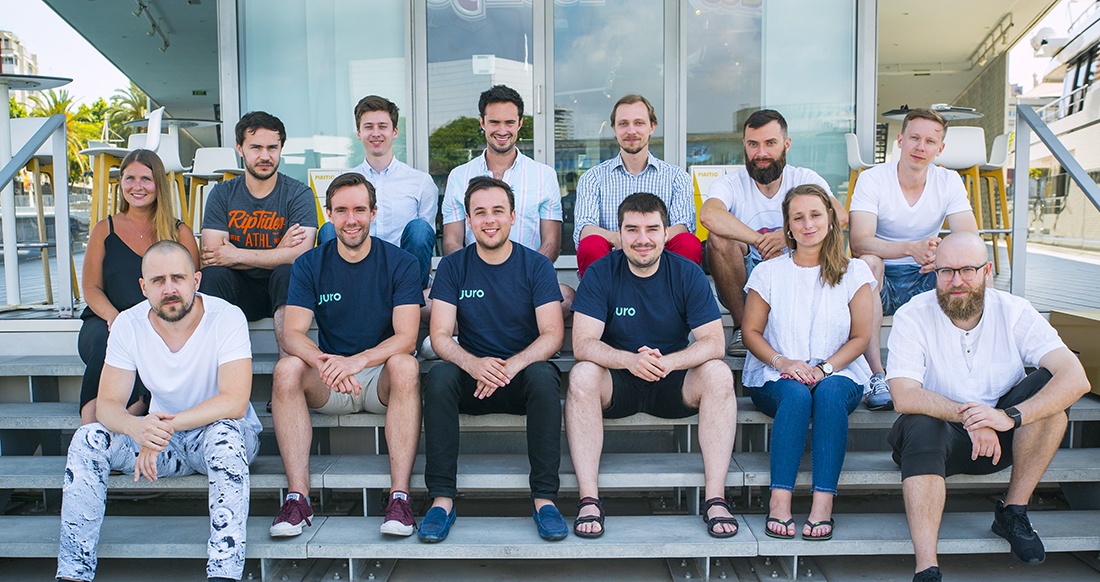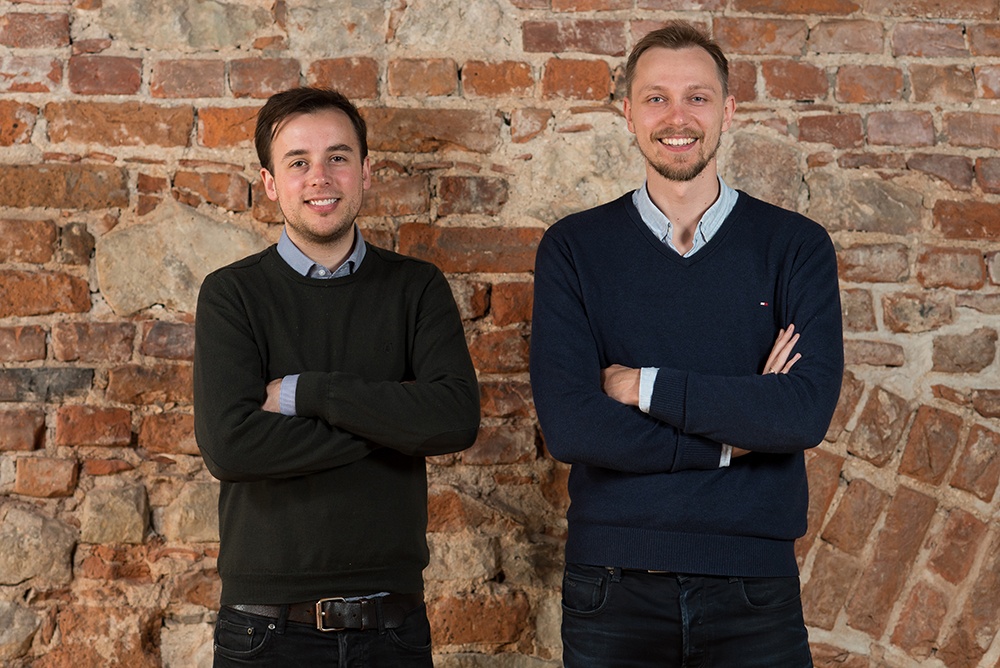Juro: How to tackle the funding and investment challenge
Are you seeking funding for your business but not sure how best to go about it? In this interview, which is a part of a series in partnership with content creators the Startup Van, the CEO and co-founder of Juro shares his experiences on finding funding for his business. He also shares tips that will help […]

Are you seeking funding for your business but not sure how best to go about it? In this interview, which is a part of a series in partnership with content creators the Startup Van, the CEO and co-founder of Juro shares his experiences on finding funding for his business. He also shares tips that will help with your company’s investment challenges.
Finding funding for your business can be challenging but it’s essential if you want your company to grow. Richard Mabey discovered that and more when he started his business but he’s learned a lot along the way.
He is the co-founder and CEO of Juro, a platform that helps businesses speed up the creation and management of contracts. The business was launched in 2016 after Richard saw a gap in the market in a previous role. He began his career as a corporate lawyer and “was struck by just how inefficient the legal services industry is”.
Richard adds: “When working with in-house legal teams, I saw first hand the pain points around managing contracts: the endless emails back and forth in contract negotiations, the horrifying manual signing processes and, on top of everything, the strange way contracts are drafted: long, full of jargon and unstructured format, for example.”
And from there, the concept of Juro was born. He says: “I decided to found a next-generation contract management platform to solve these problems and make contracts faster, smarter and more human.”
I ask Richard about the challenges that his business has faced, how funding and investment have played an important role and what is next for his fledgling business. Read on for what he has to say.
What’s the greatest challenge Juro has faced to date?
For us, it has probably been building the product. We are two-and-a-half years in and there’s still a huge amount we want to achieve for our platform, which is both broad in its features and now enabled by artificial intelligence. Because we operate in a space where pretty much everyone agrees there is a problem to be solved, one of the hardest things has been to prioritise what to solve and when.
This means having a very deep understanding of the customer, what their problems are and what is most painful. And then finding a team who can put this into practice with love.
How did you originally fund the business?
We were fortunate to be backed at the idea stage by Seedcamp, which is an early stage fund based in London. They bought into our vision early and wrote us a convertible note for £60,000. So we were actually equity funded from the outset, which meant we were able to take a small salary and cover our costs of living and keep our children in nappies.

When did you decide to reach out to fundraisers to finance your business?
From that first small cheque, we tried to be extremely capital efficient and not go out to raise seed funding until we had paying customers. In software-as-a-service (SaaS) this can be a big ask, as there is just so much stuff to build before you can get to a minimum sellable product.
This lasted us almost a year, before we raised a £550,000 seed round and then £1.43m just over a year later. The venture capital fund who led this fundraising, Point Nine Capital, had been talking to us for around eight months before they invested, so we had a good opportunity to get to know each other.
We also welcomed to our investor base the founders of Gumtree, Indeed.com and TransferWise, all of whom have been helpful to us.
How did you find the process of fundraising?
Funding is part sales and part hiring. On the one hand, you are looking to build a compelling proposition to investors: great customers, great team and great product. And on the other, you are recruiting for people or institutions that you have to get into bed with for the next five to 10 years, or longer. It’s very tough.
We started out by building a big long list of investors that we would target, getting introductions whenever we could and leveraging Seedcamp, which has a great network.
We expected this to result in x emails, y responses and z offers. In reality, the whole thing was a bit more scrappy than that. The odds of raising from VCs are pretty terrible – a VC might read 5,000 pitch decks a year to make 10 investments – and there is plenty of rejection on the way. You need to get out there, listen to feedback and create some luck.
What would you do differently next time?
One of the things we were told when we started looking for money is that investors look at the ‘three Ts’: team, technology and traction. Looking back, it seems European investors, perhaps in contrast to US investors, are disproportionately interested in that third ‘T’. In Europe, it’s more like traction, traction and traction.
Looking back, we probably would have optimised more for traction before even starting to speak with investors. It’s good to meet investors early, so they can track your progress but it is a bit of a time drain if no one if writing cheques.
The other thing I would have done differently is focus a bit more on the investors that could make a difference. If you need a fund with experience of SaaS or an angel who knows the space, focus on them and don’t be distracted by the potentially hundreds of meetings that typically go into a funding round. That’s time you could spend building, selling or hiring.

What advice would you give to businesses that are dealing with funders?
Be transparent. If you have angel or VC backers, you will likely need to report to them. If you are proactive in this approach, say with monthly emails and regular meetings, and be totally transparent, you build trust and can focus your time with them on trying to extract value rather than answering questions that could have been answered with some proper key performance indicators.
Great investors should be able to make warm intros to potential customers and hires. Make them do this. Advice is important, especially if you have very relevant investors, but in the early stage it’s results that matter. If you make the massive time investment to get smart money into the business, make it count.
What about someone starting a company and looking to grow it with external funding?
First, think hard about whether to fundraise. It seems the goal of some entrepreneurs to get a funding announcement article in the press. Fundraising is simply fuel for the tank; it is not an end in itself. Going after equity funding increases risk, dilutes your ownership and above kills lots of time. Only raise if you need to. Bootstrapped businesses can be just as successful.
Second, be humble. In my experience, you need to get ridiculously good at learning in order to push the business forward. If your starting point is that you know everything, this simply does not happen. Surround yourself with great people in your team and investor base and don’t be afraid to learn from them. You will be more successful this way.
What’s next for your business?
Juro is growing fast. We are building the team quickly and trying to get in the best possible people to take us to the next stage of growth. On the product side, we are gradually moving to more of an AI-enabled platform, which is hugely exciting. We’re fortunate to be able to work with some awesome businesses and excited for what’s coming next.
What challenges is your business facing when it comes to finding funding? And if you’ve overcome investment issues, how did you do it? Let us know in the comments below.
Startup Stories
Facing business challenges and want some inspiration to overcome them? In this free guide, a group of business owners share their experiences and offer advice that can help you keep moving your business forward.






